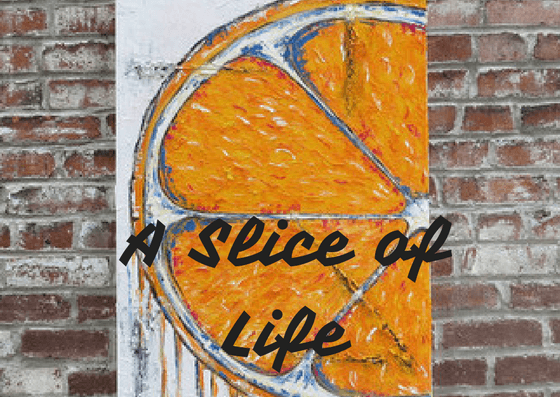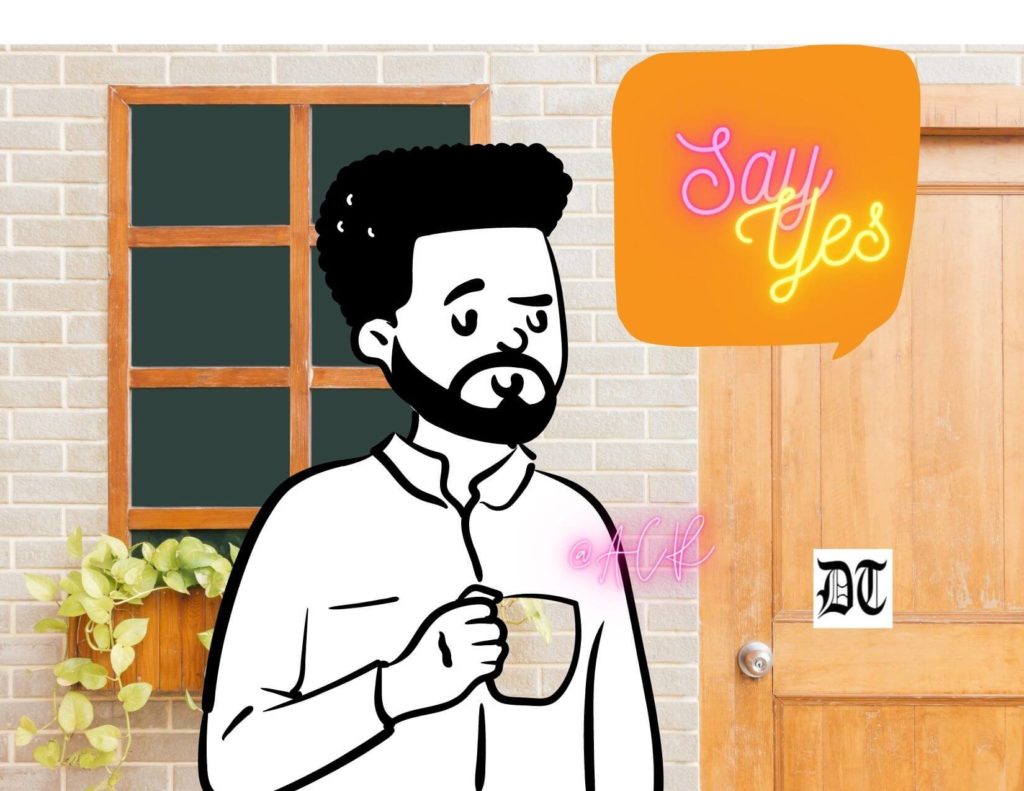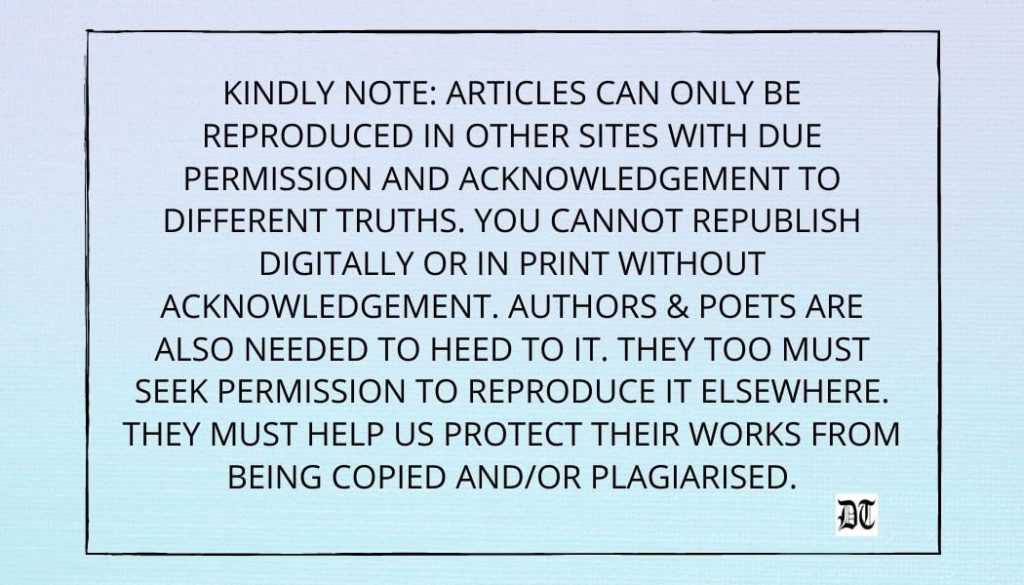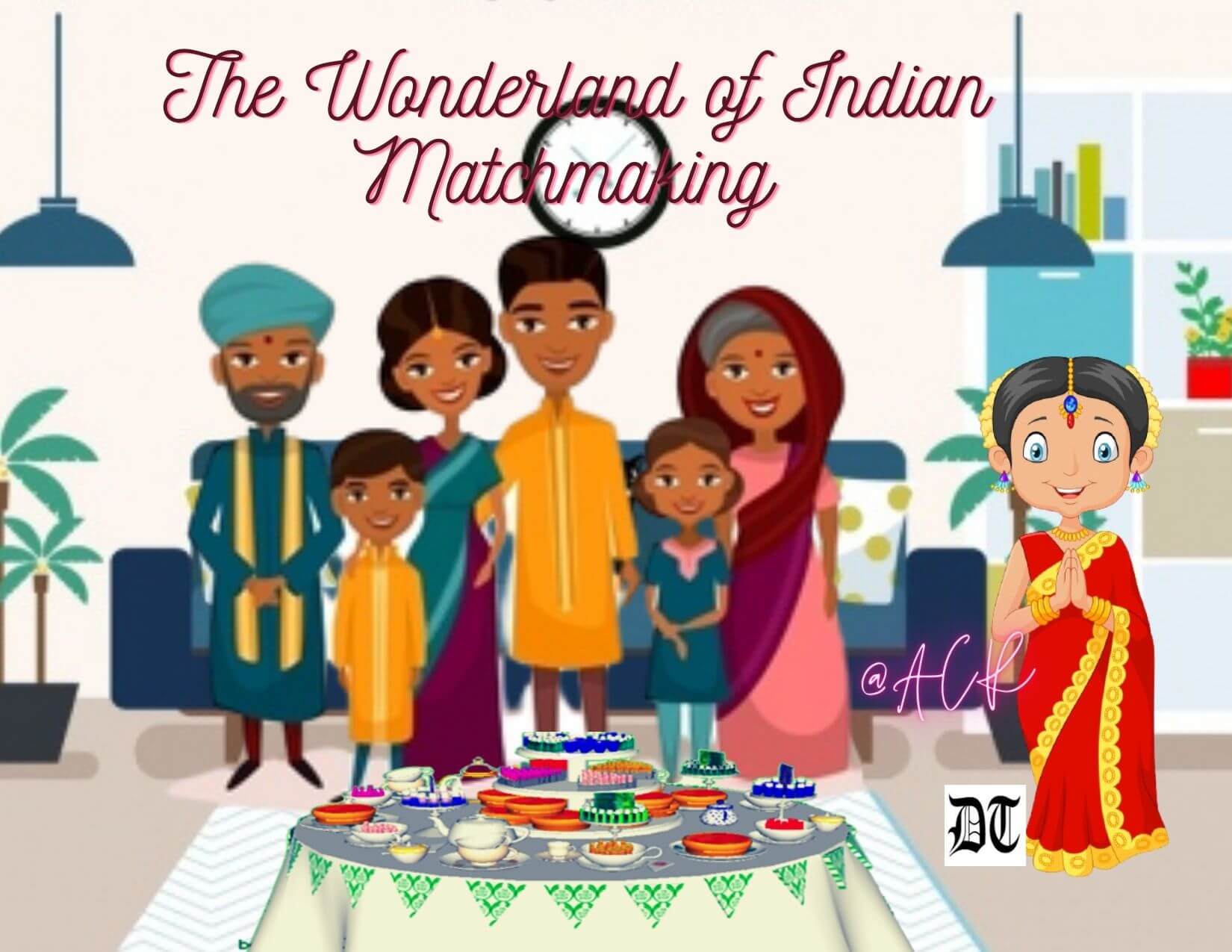Ruchira tells us about the trials and tribulations of matchmaking, where the prospective bridegroom or his family hunts for the best bride in the marriage market. A tongue-in-cheek account, exclusively for Different Truths.

Marriages are made in heaven goes the old saying. However, in India, things are rather different. Traditionally matrimonial alliances in our country have been largely fixed by parents and guardians, with the prospective brides and grooms having extraordinarily little (almost nothing) to say in the matter. This practice still flourishes full steam, though young educated liberal youth are beginning to rebel and selecting their life partners on their own. With changing times, the elders mollified their attitude and decided to involve their children in the highly crucial decision-making process of their lives.
Gradually, this made way for the evolution and proliferation of matrimonial advertisements. In fact, the arena of matrimonial ads is a vibrant, colourful one; it effectively mirrors whims, fancies, idiosyncrasies dreams and hopes of millions, who desire nothing but the best for their wards.
Gradually, this made way for the evolution and proliferation of matrimonial advertisements. In fact, the arena of matrimonial ads is a vibrant, colourful one; it effectively mirrors whims, fancies, idiosyncrasies dreams and hopes of millions, who desire nothing but the best for their wards.
Some ads are ludicrous in tone and content. I recall spotting one ad which read: “Wanted a decent smart educated bride with long hair – at least 165cms.” I was flummoxed. How on earth would the ladkewale ascertain the actual length? Would they be carrying a measuring tape to the venue of the proposed meeting? Yet another read: “Wanted beautiful smart, decent, convent educated, homely bride…” The jargon of the ad was mind-boggling. How can one be smart and homely at the same time? I wondered. There are similar weird ads galore even to this day.
Personally speaking, I was lucky to stumble upon ads, which sounded sensible and down-to-earth. So, I answered them. My parents agreed to both methods i.e. formal drawing room meeting surrounded by people or blind dates where boy-meets-girl with prior appointment. This exercise of girl/boy meeting (patro- patri dekha), in my case, had hilarious and awkward moments.
Personally speaking, I was lucky to stumble upon ads, which sounded sensible and down-to-earth. So I answered them. My parents agreed to both methods i.e. formal drawing room meeting surrounded by people or blind dates where boy-meets-girl with prior appointment. This exercise of girl/boy meeting (patro- patri dekha), in my case, had hilarious and awkward moments. One guy, a dentist by profession, whom I met at a restaurant was so nervous that he upset his glass of water on the tablecloth and tried mopping it up with his napkin.

Another fellow, an MBA from Oklahoma University, USA, was sloshed (he admitted taking a swig before leaving home) when he arrived for the rendezvous. He tottered and stumbled while we walked to a nearby joint for a bite. I was taken aback. Fancy coming to meet a decent young lady in such a state? An adman whom I met addressed me with the familiar tumi rather than the formal aapni /aap as per protocol. A smart Alec straightaway wanted to know if I drank, smoked, doped, etc. He believed convent girls (especially journos) were too “fast forward”. Hence the probe.
A Bengali family from the capital’s Chittaranjan Park came home to meet us. The chap was sheepish; in fact, he accepted water and tea only from his “busybody” sister’s hands. I was disgusted and hoped the talks would fail. And sure enough, they did.
A good-looking corporate employee from U.P.’s Rampur hadn’t the faintest idea about holding the door open – to let a lady pass – while entering and leaving a restaurant. A Bengali family from the capital’s Chittaranjan Park came home to meet us. The chap was sheepish; in fact, he accepted water and tea only from his “busybody” sister’s hands. I was disgusted and hoped the talks would fail. And sure enough, they did.
A Gujarat-based engineer who came home for a dekko, after conversing with me for a while “felt” I had been jilted several times and therefore broken-hearted. So he began to probe: How many relationships I had been into, reasons for break-ups, and so forth. It was tough trying to convince him that his suspicion was unfounded.
Another gentleman, reportedly bride hunting for his sibling, shot a lengthy literary quiz – covering the entire gamut of English literature, plus translated European works – at me. I answered a few since I had not read all the authors he mentioned.
Another gentleman, reportedly bride hunting for his sibling, shot a lengthy literary quiz – covering the entire gamut of English literature, plus translated European works – at me. I answered a few since I had not read all the authors he mentioned. Even otherwise we found it irksome because the brother in question was not present. Why? Didn’t I have a right to meet and question the latter?

Another slightly elderly bachelor who had a stringent deadline of about 45 days for his match-fixing, found me “okay” and cajoled me to say “yes.” right away. I was flabbergasted. Was it possible to decide at a moment’s notice?
By far, the most distasteful encounter I ever had was with a professor of agriculture from Rudrapur Uttarakhand. Without the minimal politeness or pleasantries, he bombarded me with questions regarding my academic qualifications, marks scored in each paper, each year, both at the graduate and postgraduate levels. At one point of time, I had a brief teaching stint in a residential school. Upon learning this, he quizzed me about the classes taught, title and content of the English textbooks, summary and moral of chapters, etc. It got so oppressive and boring that I snapped at him to make him shut up. Rather nonchalantly he launched into other slightly interesting topics. What a relief it was! I was determined to say no, even if he proposed, lest I be bored to death for the rest of my life!
By far, the most distasteful encounter I ever had was with a professor of agriculture from Rudrapur Uttarakhand. Without the minimal politeness or pleasantries, he bombarded me with questions regarding my academic qualifications, marks scored in each paper, each year, both at graduate and postgraduate levels.
On my part, I confess I behaved badly on a few occasions. There was this doctor from Gurugram, who, after a preliminary dialogue, minus frills or fuss, asked for my hand. Unfortunately, he turned out a tad short in stature considering that I stand 175cms bare feet, above average for an Indian woman. I resisted proffering an instant reply, dilly-dallied for a few weeks and finally asked my parents to convey my refusal. His folks took it in good part, though.
Later, I met a bank employee, who fitted my bill of requirements to a Tee. But it was such a pity, he had exceedingly poor eyesight. So when he planned to meet me a second time, I didn’t turn up. He was disappointed, angry. In a voluminous letter, he unleashed his bitterness, cursing me that I would never be happy in my married life in future, blah blah… This was decades ago and I earnestly hope they eventually found better life partners than me.
Visuals by Different Truths








 By
By
 By
By